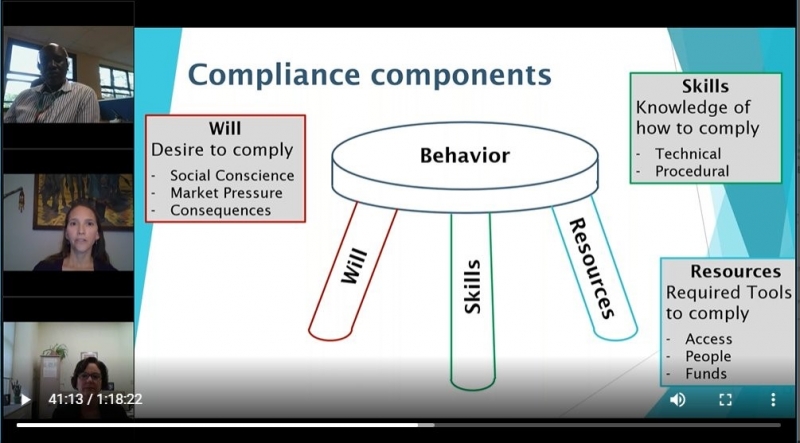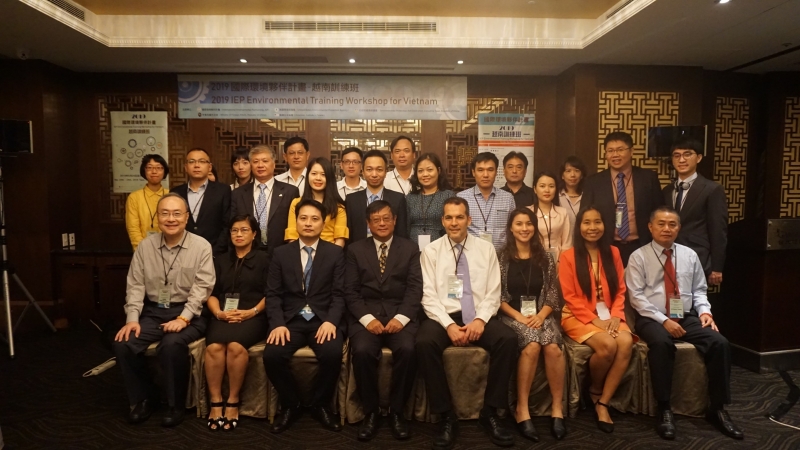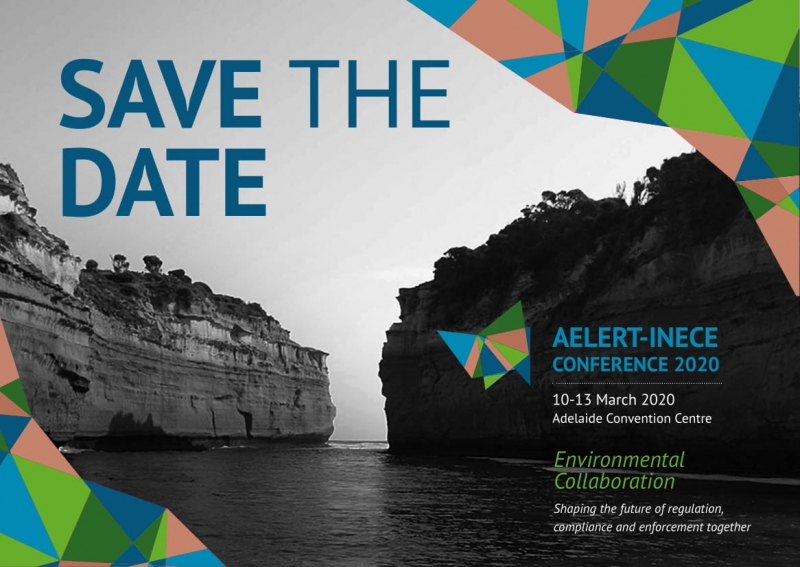Since 2015, ELI has served as Secretariat for the International Network for Environmental Compliance and Enforcement (INECE). Now a month into the new year, we thought it was an opportune time to look back at INECE’s accomplishments from 2019, reflect on key developments pertaining to environmental compliance and enforcement, and share some news for 2020.
During the fourth year of ELI’s tenure as Secretariat, ELI worked to expand INECE’s capacity-building programs, support initiatives throughout the environmental compliance and enforcement community, and ensure the Network’s continued success for years to come. INECE’s Academic Committee, launched in 2019, is bringing in new members from around the world and positioning itself to be an engine of research on environmental compliance and enforcement. New partnerships have generated novel project ideas and fueled increasing momentum for programs to come.
 |
|
Frame from the INECE Compliance Conversations on Eliminating Lead Paint. |
Early in the year, INECE launched its newest online capacity-building tool, Compliance Conversations, which aims to create a space for practical, specific, and solutions-oriented communication among environmental compliance and enforcement practitioners around a particular and relevant challenge. Throughout 2019, the Secretariat convened three Compliance Conversations: Developing Compliance Models for Off Grid Wastewater Treatment and Reuse Systems; Tackling Emissions from Secondhand Car Imports; and Eliminating Lead Paint. These Conversations brought together practitioners from around the world, including organizations and experts new to INECE’s circle.
In partnership with U.S. EPA and the Asian Environmental Compliance and Enforcement Network (AECEN), the INECE Secretariat facilitated a twinning program between the Viet Nam Ministry of Natural Resources (MONRE) and the Environment and the Taiwan Environmental Protection Administration (EPAT) in Taipei in May of 2019. The program, which sought to inform the revisions of Viet Nam’s framework Environmental Protection Law, produced a series of objectives and action items for MONRE on the topics of environmental impact assessment, waste management, and extended producer responsibility.
 |
|
Group photo of participants and facilitators in the 2019 Twinning Program in Taipei. |
In the spring of 2019, INECE organized a discussion series on Whistleblowers and Citizen-Driven Environmental Enforcement. Through a series of four webinars, INECE and the National Whistleblower Center brought together practitioners and experts to explore tools for citizen-led enforcement initiatives, and the growing recognition of the role of whistleblowers in this arena.
INECE closed out the year by participating in the LIFE SMART Waste and INTERPOL’s Pollution Crime Working Group conference in November.
Waste was a leading topic of international discussions in 2019—both at INECE and around the world. Following the passage of China’s plastic ban, the challenges of waste enforcement was at the forefront of many international discussions in 2019, particularly concerning the disposal of plastics and e-waste. There has been growing attention to the impacts of this crisis in Southeast Asia, which has been matched with investments in enforcement capabilities in countries such as Viet Nam and India. Early in the year, Malaysia, which had experienced and influx of plastic after China’s ban, passed their own plastics ban and a few months later announced that it was returning 3000 tons of illegally exported waste to their countries of origin. In September, the Basel Convention ratified a proposal to make plastic waste subject to controls under the convention.
Climate-related lawsuits were widely recognized as another defining issue of 2019. In December, the Supreme Court of the Netherlands upheld a prior ruling in Urgenda Foundation v. The State of Netherlands requiring the Dutch government to reduce its emissions. In Canada, meanwhile, a judge rejected a youth group’s climate case on the grounds that the class-action status was inappropriate, yet it also found that the claims were within the courts’ legal jurisdiction. While Juliana. v. United States case continues to wind its way through the U.S. court system, numerous state and local level cases are moving forward. Meanwhile, 16 youths from around the world presented a legal climate case to the UN Committee on the Rights of the Child, arguing that the lack of coordinated global action on climate change is in violation of the Convention on the Rights of the Child. As these cases come up in distinct governance spheres, at the local, national, and inter-governmental scales, they raise important questions about the role of the courts in compelling governments to enact and implement climate legislation.
There was also a growing understanding in 2019 of how crime networks implicate and contribute to environmental crimes. Many discussed how the criminal networks driving up illegal logging in Brazil could be linked to the devastating fires in the Amazon Rainforest last fall. The Center for International Environmental Law released a report in July directly addressing the role of criminal networks in illegal timber laundering in the Peruvian Amazon, and mapping out how government officials enable the illegal trade. And INECE Academic Committee Co-Chair, Mark Ungar, was featured in an ELI podcast on the drivers of deforestation in the Amazon and the innovative strategies being employed to combat it. In the realm of the oceans, alarm over the plight of the vaquita has drawn attention to how organized criminal syndicates spanning the globe have driven the species to near extinction. Andrea Crosta, Executive Director and Co-Founder of Earth League International, who was featured prominently in the Sea of Shadows documentary about the vaquita-related poaching crimes, spoke during our webinar on Illegal Wildlife Trade about how his organization uses high-security intelligence operations to pursue environmental crimes.
The world turned its attention to the environmental rule of law and the role of environmental defenders in upholding it. The First Global Report on the Environmental Rule of Law, published early in 2019, marked the first ever effort to assess the implementation of environmental legislation around the world. It revealed that, despite the marked growth in environmental laws around the world, weak enforcement hinders the intended improvements in environmental outcomes.

2020 marks the 30th year since the first INECE workshop in Utrecht, Netherlands, and it will also be the year of INECE’s 10th International Conference, put on in collaboration with AELERT. The conference, which will take place from March 10-13 in Adelaide, South Australia, will focus on the theme of Environmental Collaboration: Shaping the Future of Regulation, Compliance and Enforcement Together. Registration is now open for the conference, and we hope that you will join us in Adelaide for this important global convening of compliance and enforcement practitioners and researchers from around the world! If you or your agency or company is interested in becoming a conference sponsor or in enabling participants from developing countries to attend the conference, please contact the Conference Secretariat to learn more about opportunities (2020aelert-inece@conlog.com.au).
The continued support of our members is essential to our ability to continue providing a platform for collaboration and capacity-building as the only global network focusing on compliance and enforcement of environmental law around the world. If you have any questions about membership or wish to participate in INECE’s governance, please contact us directly at inece@inece.org.
